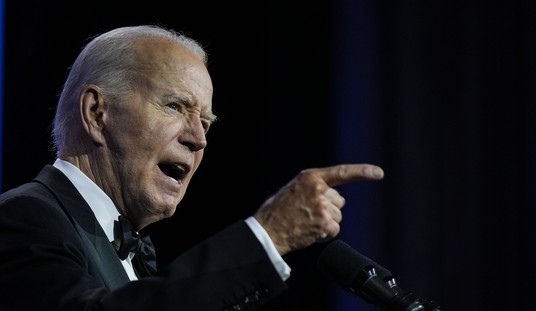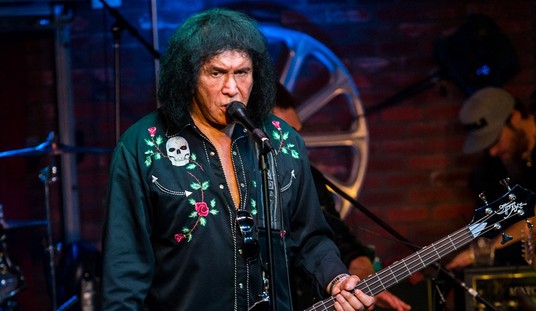Americans and Canadians share what is commonly referred to as the longest undefended border in the world. We use the word “undefended” to mean that no military personnel are standing guard to prevent rabid liberal Canadians from invading the US and making everyone tag questioning interjections to the end of their sentences or bible-thumping Republicans from invading Canada and putting a stop to that nasty gay marriage business.
But, in fact, there is some level of defense. On both sides we have border guards of similar ilk: Frowning individuals prone to repeating questions and rifling through wallets for unpaid parking slips or receipts from Terrorists R Us.
In 2004 and 2005, I crossed the border in both directions several times. I was dating an American who eventually became my husband despite (or perhaps because of) US and Canadian border guards who questioned us for an average of three hours on each crossing. My favorite incident was when a Canadian guard looked at my then-boyfriend and said: “Sir, I’m going to ask this to you again when you come inside, so I’d like you to carefully consider your answer. Do you have any jewelry on your person? Like, perhaps, a ring?”
Romantic.
The American guards were no better. They suggested we might just as well “get on with it” and get married after reviewing all the trips we’d taken back and forth in the previous 12 months – all of which were stored in their system. Good old border guards doing their best to ensure no cross-border fornication outside of wedlock.
There was one difference between the American and Canadian border guards, however.
While the Americans were clearly packing heat, the Canadians were not. They were left to stop criminals from entering Canada with simple batons and cold, hard stares.
In September 2006, American authorities were tracking a fugitive they thought might be heading across the border to Canada. They informed the Canada Border Services Agency (CSBA) that an ”armed and dangerous” man may attempt to cross and that he was wanted for homicide. This was at 2 pm on September 24. At 2:15 ten guards at a British Columbia crossing walked off the job. Two hours later more guards from other crossings also left. By late that afternoon, signs on the road heading to several British Columbia crossings stated: ”All crossing closed. Expect long delays.”
What were Canadian border guards to do? Throw their batons at the guy as he sped through? According to a National Post article published the day after the incident the guards were “citing their right to refuse dangerous work under the federal Labour Code.”
And it wasn’t the first time.
In January (2006), news that two murder suspects from California were heading to the Peace Arch border crossing prompted up to 50 Canadian border officers to walk off the job. One month later, a Canadian customs officer refused to work at a border crossing in southeast B.C. because of fears that an armed American fugitive was heading to that station.
It was with incidents like this in mind that Prime Minister Stephen Harper announced in 2006 that he would be arming Canadian border guards. And sure enough, recruits started graduating from classes in July 2007 with the hopes that at least 150 would be certified to carry guns by next March. That’s out of almost 7200 guards. Citing “security concerns,” no one is saying which posts will get the guards with guns, but you can be sure that the British Columbia crossings will be at the top of the list.
There are, however, a few snags.
First, the recruits (part of 1200 students hired each summer for training) don’t seem to be of very high quality. In fact, I wouldn’t trust them to guard a dead beaver. Reports CBC News:
Canada Border Services Agency officers who work in B.C. are being accused of posting inappropriate and offensive material, some of it directly related to their jobs, on the internet.
Thanks to the wonderment that is Facebook, you can see these recruits drinking in uniform and making lewd gestures, as well as read some high-level writing like: “I don’t have a gun… YET!!! You will be the first one to hear about it when serial killer Harper gives me one.” This same officer “also pictured in uniform on the web, posted responses to a quiz – answering that she has cheated on a test, smoked pot and felt like killing someone.”
On top of that, “one in five Canadian border guards have been flunking their shooting lessons” according to The Windsor Star. But don’t worry, they get do-overs, thanks to the Customs and Excise Union asking for leniency. Some of the trainees weren’t even fit enough to hold their arms steady for the three weeks of training.
So exactly who is defending Canada’s border? Is it time that the Americans took a closer look at what’s going on along the 49th parallel?
This question became even more pressing last week when a 13 month RCMP investigation resulted in the arrest of a six-year veteran of the Canada Border Services Agency.
Baljinder Kandola, a 35-year-old Surrey resident and a border guard for six years, faces six criminal charges: importing cocaine into Canada, conspiracy to import cocaine, possession for the purposes of trafficking, importing a restricted firearm, and breach of trust and bribery.
The CBSA has had its fair share of controversy in 2007 alone.
A former CBSA officer, Daniel Greenhalgh, was charged recently with three counts of sexual assault. He is accused of inappropriately strip-searching an 18-year-old woman in a public washroom at the Douglas border crossing, where he worked.
The US-Canadian border is known for its lax security so Americans should not rely on Canadians to clean up their act any time soon. On October 30, 2007, the Canadian Broadcasting Corporation (CBC) issued a news release which read:
Possibly dangerous people and goods were allowed to slip into Canada earlier this year because of problems at the country’s border agency, federal auditor general Sheila Fraser said in a report issued Tuesday. She said the travelers and shipments were labeled on watch lists as potential risks, but Canada Border Services Agency officers did not take a closer look at them.
The $781 million price tag and the estimated ten years that it will take to fully train CSBA officers mean that Canada’s border will remain as porous and undefended as ever.
Unless you want to marry an American. Then you’re practically Public Enemy #1.
Heather Cook lives in Calgary, Alberta with her husband, a former U.S. Army officer, and two children. She can be found online at heather-cook.com.









Join the conversation as a VIP Member